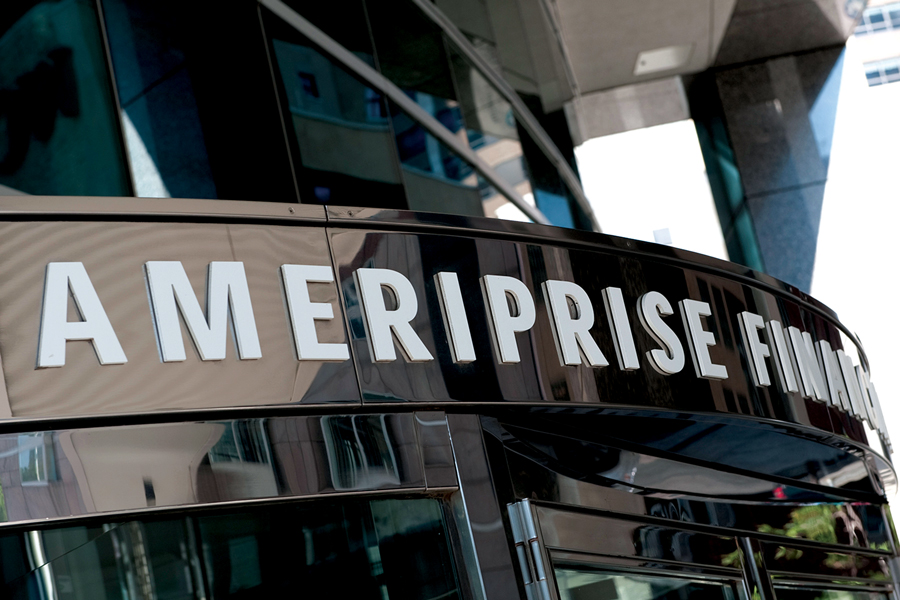

Bank of Montreal agreed to sell its Europe, Middle East and Africa asset-management unit to Ameriprise Financial Inc. for 615 million pounds ($847 million), marking Chief Executive Darryl White’s biggest move yet to trim the bank’s portfolio of non-core businesses.
The sale also includes the opportunity for some U.S. clients to move to Ameriprise’s Columbia Threadneedle Investments unit, subject to their consent, Toronto-based Bank of Montreal said in a statement Monday.
White, who took the reins of Canada’s fourth-largest lender in 2017, said in January that BMO was looking to “harvest investments” in businesses where the returns weren’t good enough or where the bank didn’t see a path to a leadership position, and then redeploy that capital toward better opportunities.
Increased competition on fees and a shift to passively managed investments have hampered profitability in the fund industry, prompting banks including Societe Generale and Wells Fargo & Co. to sell their asset-management operations.
Bloomberg News reported in October that BMO was exploring options for its asset-management operations, including seeking a buyer for parts of the business outside its home market.
Ameriprise said in a separate statement that the deal, expected to close in the fourth quarter, will give it an additional $124 billion of assets under management in Europe, bringing its total AUM to more than $1.2 trillion. The acquisition will accelerate Ameriprise’s strategy of growing its fee-based businesses and boost the overall contribution from wealth and asset management, the company said.
Bank of Montreal has weathered the Covid-19 crisis with strong results from its capital-markets unit, which has benefited from a surge in volatility and trading. And while increased provisions to protect against the possibility of rising defaults have weighed on overall earnings, the lender’s North American personal and commercial banking business has been helped by rising deposits and shrinking costs.

Rajesh Markan earlier this year pleaded guilty to one count of criminal fraud related to his sale of fake investments to 10 clients totaling $2.9 million.

From building trust to steering through emotions and responding to client challenges, new advisors need human skills to shape the future of the advice industry.

"The outcome is correct, but it's disappointing that FINRA had ample opportunity to investigate the merits of clients' allegations in these claims, including the testimony in the three investor arbitrations with hearings," Jeff Erez, a plaintiff's attorney representing a large portion of the Stifel clients, said.

Chair also praised the passage of stablecoin legislation this week.

Maridea Wealth Management's deal in Chicago, Illinois is its first after securing a strategic investment in April.
Orion's Tom Wilson on delivering coordinated, high-touch service in a world where returns alone no longer set you apart.
Barely a decade old, registered index-linked annuities have quickly surged in popularity, thanks to their unique blend of protection and growth potential—an appealing option for investors looking to chart a steadier course through today's choppy market waters, says Myles Lambert, Brighthouse Financial.
